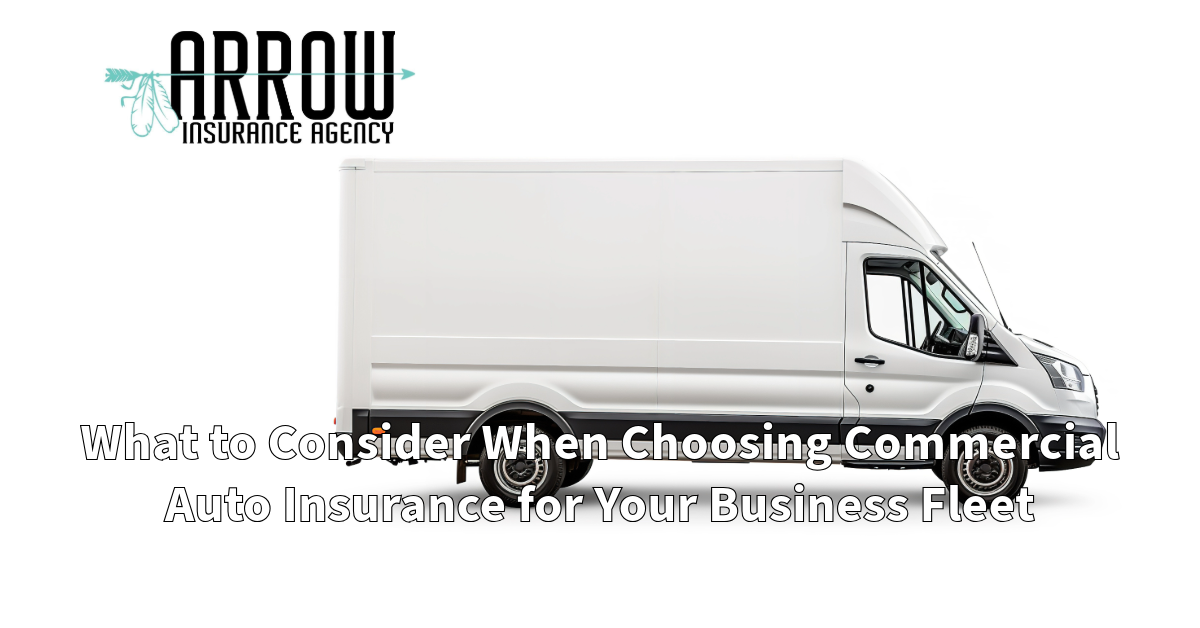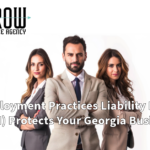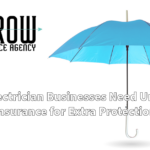Claire had spent years building up her local courier business from one small van to a fleet of delivery vehicles that served customers all across the region. Her business had become a reliable name, with each vehicle representing a significant investment in her company’s growth. Then one busy afternoon, one of her drivers called with troubling news: their delivery van had been in an accident. Thankfully, everyone was safe, but the vehicle was seriously damaged. Suddenly, Claire faced potential repair costs, medical bills, and unexpected legal expenses. This incident was a reminder of how crucial the right commercial auto insurance is—not just to cover repairs but to keep her business running smoothly through unforeseen challenges.
Why Commercial Auto Insurance Is Essential for Small Fleets
For businesses like Claire’s, personal auto policies won’t cover the unique risks associated with business use. Commercial auto insurance provides specialized coverage for business-owned vehicles, which can range from vans and pickup trucks to box trucks and other types of commercial vehicles. This policy is designed to handle risks specific to commercial operations, such as liability for bodily injury, property damage, and vehicle repairs. Even if you only have a few vehicles, the costs associated with an accident or unexpected incident can add up, making commercial auto coverage essential for financial protection and peace of mind.
What’s Covered in a Commercial Auto Insurance Policy?
A comprehensive commercial auto insurance policy provides coverage options tailored to protect your vehicles, employees, and overall business investment. Here are key types of coverage that small business owners should consider:
1. Liability Coverage for Bodily Injury and Property Damage
Liability coverage is the cornerstone of any commercial auto insurance policy. This coverage helps pay for medical expenses and legal costs if a business vehicle causes an accident that injures others or damages property. Without liability insurance, a single at-fault accident could lead to costly lawsuits, settlements, or even court judgments that could strain or bankrupt a small business.
2. Collision Coverage
Collision coverage steps in to cover repair or replacement costs if one of your vehicles is damaged in an accident, regardless of fault. Whether it’s a fender bender in a parking lot or a more severe incident, collision coverage helps ensure your business vehicle can be repaired and quickly returned to service. For businesses with multiple vehicles on the road, this coverage is crucial to avoid prolonged downtime and financial loss.
3. Comprehensive Coverage
Comprehensive coverage extends protection to events that are beyond your control, covering damage from non-collision incidents like theft, vandalism, fire, or natural disasters. Comprehensive coverage means you won’t face full repair or replacement costs out of pocket if one of your commercial vehicles is damaged by events other than a collision. Small businesses with fleets or valuable equipment often find this coverage indispensable for managing risks.
4. Uninsured and Underinsured Motorist Coverage
Accidents involving uninsured or underinsured drivers can result in substantial expenses, especially if they lack sufficient coverage to pay for your damages. Uninsured and underinsured motorist coverage steps in to cover medical bills, repairs, and related costs if one of your business vehicles is hit by a driver with little or no insurance. This coverage ensures that your company’s financial interests are protected, even if the at-fault driver can’t pay.
5. Medical Payments and Personal Injury Protection (PIP)
Medical payments coverage and personal injury protection (PIP) cover immediate medical expenses for drivers and passengers after an accident, regardless of fault. For business owners, this coverage can offer peace of mind that medical costs, such as ambulance rides, emergency room visits, and even lost wages, are covered in the event of an accident. PIP may also include benefits for rehabilitation and lost income, depending on the policy.
How to Choose Appropriate Coverage Limits
Selecting the right coverage limits is a critical decision for business owners. Higher coverage limits offer increased protection but come at a higher premium, so it’s essential to strike a balance between comprehensive coverage and affordability. Liability limits for commercial auto insurance vary widely, and many small business owners opt for a combination of liability, collision, and comprehensive coverage with limits tailored to their industry’s specific risks. Consulting with a trusted insurance provider can help you determine what policy limits align with your business size, operations, and budget.
Managing Insurance Premiums and Rates
Commercial auto insurance premiums can be influenced by a range of factors, from the types of vehicles in your fleet to the driving records of your employees. Other factors like location, fleet size, and vehicle usage can also impact costs. Here are a few tips for managing premium rates while ensuring adequate coverage:
- Maintain Good Driving Records: Insurance companies often offer lower rates for fleets with clean driving records. Training drivers on safe driving habits and minimizing at-fault accidents can reduce premium costs.
- Consider Deductible Options: A higher deductible can lower your premium but increases your out-of-pocket expense in the event of a claim. Evaluate deductible options carefully to see what works best for your budget and risk tolerance.
- Choose Vehicles with Safety Features: Commercial vehicles with advanced safety features like anti-lock brakes, airbags, and collision avoidance systems may qualify for discounts. These features can reduce the likelihood of accidents and subsequent claims.
Common Questions on Commercial Auto Coverage
Small business owners often have questions about the intricacies of commercial auto insurance. Here are some frequently asked questions to consider:
- What types of vehicles can be covered under a commercial auto policy?
Commercial auto insurance can cover a range of vehicles, including company cars, vans, trucks, and specialized commercial vehicles like food trucks or construction vehicles. This coverage is flexible enough to suit various business operations, from delivery services to heavy-duty trucks in the construction industry. - Is there a difference between personal and commercial auto policies?
Yes. Personal auto policies generally don’t cover vehicles used for business purposes. Commercial auto policies offer additional protections tailored to business vehicles, such as higher liability limits and specialized coverages that account for business-related risks. - Do I need coverage for employees who use personal vehicles for work?
If your employees use personal vehicles for work purposes, you may need a “non-owned auto liability” endorsement to protect against claims if an employee has an accident while on the job. This coverage can offer additional protection for businesses that rely on employee-owned vehicles.
For more insights on business insurance, check out our posts on Understanding Commercial Property Insurance: Protecting Your Business’s Physical Assets, Why General Liability Insurance Is a Must-Have for Every Business, and Do I Need Business Interruption Insurance for My Georgia Business?.
Protecting Your Fleet Means Protecting Your Business
As Claire learned, having the right commercial auto insurance policy isn’t just about covering vehicles—it’s about protecting the business as a whole. With coverage for liability, physical damage, medical expenses, and more, a commercial auto policy can help safeguard your business from the financial fallout of accidents, theft, and unexpected incidents. Taking the time to evaluate your coverage needs, explore policy limits, and manage premiums with a trusted insurance partner is a wise investment in your business’s future.

Zaheed Hussain – Owner/Founder
Arrow Insurance Agency is dedicated to protecting families and businesses with customized insurance solutions. Based in Loganville, Georgia, we proudly serve the surrounding communities as well as the states of Florida, Alabama, and South Carolina. As an independent insurance agency, we work with top-rated carriers to help clients save money, reduce risk, and safeguard their financial future. Whether you need coverage for your home, auto, or business, Arrow Insurance Agency is committed to providing personalized service that treats you like family.







